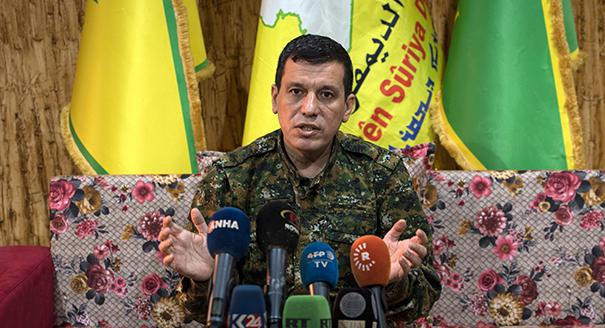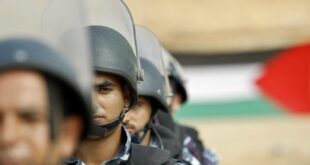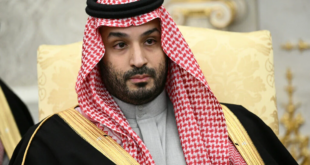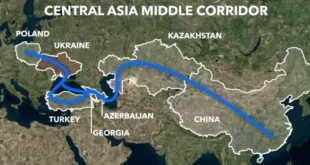Türkiye is raising the heat on the Patriotic Union of Kurdistan, denouncing its ties with the Syrian Democratic Forces.
After a helicopter carrying Syrian Kurdish fighters crashed in Duhok on March 26, Türkiye imposed a ban on all flights to and from Sulaimaniyah through its airspace. It did so because it has accused the main party in Sulaimaniyah, the Patriotic Union of Kurdistan (PUK), of allowing members of the Syrian Democratic Forces (SDF) to use the airport. According to the Turks, the SDF serves as a proxy for the Kurdistan Workers’ Party (PKK), which Ankara considers a terrorist organization. However, the SDF has consistently denied this link, as has the United States. Servan Kobani, the commander of the SDF’s antiterror units, the YAT, was among those killed in the crash, and is a nephew of the SDF’s top leader Mazloum Abdi.
The episode casts light on the relationship between the PUK, whose leader is Bafel Talabani, and the SDF. Türkiye has been greatly disturbed by their ties, and not for the first time. In 2017–2019, it had also banned flights to Sulaimaniyah, claiming the PUK supported the PKK. However, that flight ban was ended after the PUK cracked down on PKK activities and closed the offices of a PKK affiliate, even if the PUK’s support for the Kurdish-dominated Autonomous Administration of North and East Syria (AANES), better known as Rojava, has continued.
In 2021, Bafel Talabani replaced his cousin Lahur Talabani as sole leader of the PUK, after Lahur had been accused of attempting to poison him. Despite the leadership change, it remained uncertain whether Bafel would maintain the PUK’s connections with the SDF. Lahur, who previously served as director of the PUK’s Counter Terrorism Group (CTG) and Zanyari, the PUK’s intelligence agency, had publicly visited northern Syria. But Bafel too had been involved in meetings with the SDF in the past, and had even named his son after the Syrian city of Kobani, where Syrian Kurdish organizations had fought the Islamic State group in 2014.
The leadership change in the PUK came amid initial rumors that Türkiye opposed Lahur Talabani and backed a new PUK leader. Lahur himself blamed the Kurdistan Democratic Party (KDP) and Türkiye, and alleged that Turkish President Recep Tayyip Erdoğan wanted him killed. Other sources also reported that Ankara was happy with the turn of events.
Despite Bafel Talabani’s takeover of power, there is no sign yet that this will undermine the PUK’s ties with the SDF. However, in 2021, Abdi had lobbied U.S. officials to back Lahur Talabani, fearing that Bafel could end the relationship. His suspicions ended when Bafel reassured him that the ties with the PUK would continue. “Mazloum wants to work with whomever controls the PUK, whether it is Lahur Talabani or Bafel Talabani,” a source who participated in PUK-SDF meetings told me
In December 2022, Bafel Talabani visited Rojava for the first time publicly, joining the commander of the international coalition fighting the Islamic State, Major General Matthew McFarlane. There, he met with Abdi and other senior leaders of the SDF and the Democratic Union Party (PYD), the dominant party in Rojava. The PUK spokesperson, Soran Jamal Taher, seemed to echo this closeness, when he told me that his organization supported the fight against the Islamic State under the supervision of the international coalition after the group had invaded many parts of Kurdistan. “Cooperation with the Kurdish people in [Turkish Kurdistan], [Syrian Kurdistan], or any other place was mandatory in the fight against [the Islamic State]. We also support the rights of any part of Kurdistan, including Rojava,” he added.
On April 7, Türkiye conducted a drone strike in the vicinity of Sulaimaniyah airport against a convoy in which Abdi was riding. This was a warning to the coalition fighting the Islamic state that it should not support the SDF, with the air bridge between Sulaimaniyah and northeastern Syria being a major source of frustration for Ankara. The air bridge allows the SDF to bypass the Fish Khabur border crossing and Erbil airport, both of which the KDP controls. Ties between Türkiye and the KDP are considerably better than those between Ankara and the PUK.
“The [Fish Khabur crossing] is subject to political tensions,” a source who asked to remain anonymous and was involved in the PUK-SDF meetings explained. “So, Sulaimaniyah airport is one of the greatest access points for SDF officials to fly to many airports.” For example, in a report on May 3 for Al Monitor, correspondent Amberin Zaman reported that Abdi had recently flown to the United Arab Emirates with Bafel Talabani. Moreover, Syrian Kurdish officials recently visited Europe through Sulaimaniyah airport.
“The PUK’s administrative capital, Sulaimaniyah, is of diplomatic importance to the SDF as [the organization] intends to deepen its relations with the PUK,” noted Spencer Black, a Syria-based researcher who works for the Rojava Information Center. “Sulaimaniyah International Airport is the main entry point into PUK-governed territories, becoming a high-priority target for Turkish intelligence when leaders from the SDF meet with PUK leaders.”
Black added that Turkish intelligence has stepped up attacks in Sulaimaniyah. Aside from the drone strike on the airport, for instance, in June 2022 another drone strike in the Kelar district of Sulaimaniyah Governorate killed a Syrian Kurdish official, Ferhat Şibli.
The co-chair of the Department of External Relations in AANES, Bedran Çiya Kurd, described Türkiye’s longstanding opposition to the PUK’s support for AANES and the SDF. “For years, they have sought to undermine this agreement through various means, as evidenced by the recent terrorist attack on Sulaimaniyah airport carried out by the Ankara regime.” He went on to say, “The primary aim of the attack was to weaken the relationship between our revolution and the PUK and push things toward a more hostile and confrontational direction. Despite this, the PUK has remained steadfast in its honorable stance and [has] preferred to prioritize the strength and solidity of our relationship over all Turkish attempts to derail it.”
As relations between the KDP and the SDF have deteriorated, AANES and SDF officials have relied more on Sulaimaniyah, as opposed to Erbil, for overseas travel. The worsening of KDP-SDF relations comes in the shadow of the large military incursions that Türkiye has launched since 2019 against the PKK in Iraqi Kurdistan. In 2020, the KDP accused the PYD’s military arm, the People’s Protection Units (YPG), of attacking KDP Peshmerga forces near the Syrian border. However, the YPG denied this. Therefore, it is more difficult for AANES or SDF officials to visit Erbil, or use the Fish Khabur crossing. Unity talks between the PYD and the KDP-backed Kurdish National Council in Syria were also suspended in 2020 due to rising tensions.
The international coalition to fight the Islamic State has supported the SDF. Yet this has also caused friction between the coalition and the KDP, since most of the coalition’s logistical support to northern Syria runs through Erbil airport. The coalition had also chartered flights between Syria and Sulaimaniyah for SDF and PUK officials, as when Lahur Talabani visited Kobani in 2016. However, the helicopter crash shows that the SDF also unilaterally flies between northeast Syria and Sulaimaniyah. The prime minister of the Kurdistan Region in Iraq, Masrour Barzani, has reportedly asked the United States to stop these flights.
Retired Colonel Myles B. Caggins III, a Newlines Institute senior nonresident fellow and former coalition spokesman, told me that the relationship between the PUK’s CTG and the SDF “has been encouraged and often coordinated between U.S. Special Operations Forces.” He underlined that the ties were a quick response to combat the Islamic State in 2014. The CTG and U.S. Joint Special Operations advisors began coordinating on the ground in Syria starting in 2014, and continue to do so today. “So there was a continual communication between advisors in Syria and the advisors with the CTG,” Caggins stated.
The PUK also played an important role in opening channels between the YPG and the U.S. military to coordinate airstrikes against the Islamic State in Kobani when the city was besieged by the Islamic State in September 2014. At an event organized by the Newlines Institute and the Kurdish Peace Institute on May 9, the former commander of U.S. Central Command, General Joseph Votel, mentioned how the U.S. military was introduced to the YPG leadership during the Kobani battle, “especially [through] the [Sulaimaniyah] based PUK.” Votel went on to recall, “Our partners in Sulaimaniyah connected us with General Mazloum [Abdi] and his other leaders and officers and through our very innovative Special Operations Forces. We were able to devise a communication system largely built around cell phones and the internet that allowed us to support them in their defense of Kobani.”
The U.S.-CTG relationship actually dates back to 2002, when the PUK fought the Ansar al-Islam Kurdish Islamist group, and the CTG was set up with U.S. support. Therefore, the PUK established a similar relationship between the SDF and the Americans to fight jihadists in Syria.
Black, from the Rojava Information Center, made a similar observation to Votel’s. He told me the “SDF and PUK hold a military partnership that has existed since the early phases of the war [in Syria].” He also added that the PUK has “supported the SDF in a number of battles, including [battles] in Kobani, Manbij, and Deir al-Zor.” In the past two months, the CTG has also carried out two joint operations with the SDF in Syria. However, the PUK relationship with the YPG and SDF actually predates the fight against the Islamic State in 2014. A small PUK-friendly party supported the YPG in the battle for Serekaniye against Turkish-backed rebels.
The deputy prime minister of the Kurdistan Region in Iraq, Qubad Talabani, has engaged in talks with Turkish officials to lift the flight ban on Sulaimaniyah. However, as of now, no agreement has been reached between the PUK and Türkiye. Most likely the PUK will resume discussions after the May 14 Turkish parliamentary and presidential elections.
“The issue of Turkish intervention was a one-sided decision, and we haven’t found a solution to it yet,” PUK spokesperson Soran Jamal Taher told me. “The people and citizens of Kurdistan and Sulaimaniyah should not be affected by this issue. We need good relations with neighboring countries.” However, even after the July deadline, Türkiye could extend the flight ban, which so far has benefited the Erbil and Kirkuk airports.
The future of the PUK’s relationship with the SDF is uncertain and will depend on the outcome of Türkiye’s elections this weekend, as well as subsequent negotiations with Ankara. The nature of those negotiations may vary depending on whether a coalition led by Erdoğan’s Justice and Development Party or Kemal Kılıçdaroğlu’s Republican People’s Party takes charge. If Erdoğan loses, it could potentially facilitate a resolution of Türkiye’s problem with the PUK. Otherwise, the PUK will have to start looking for alternative flight paths to replace those that had crossed Turkish territory.
 Eurasia Press & News
Eurasia Press & News




